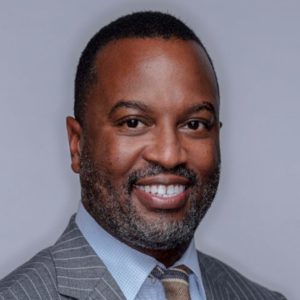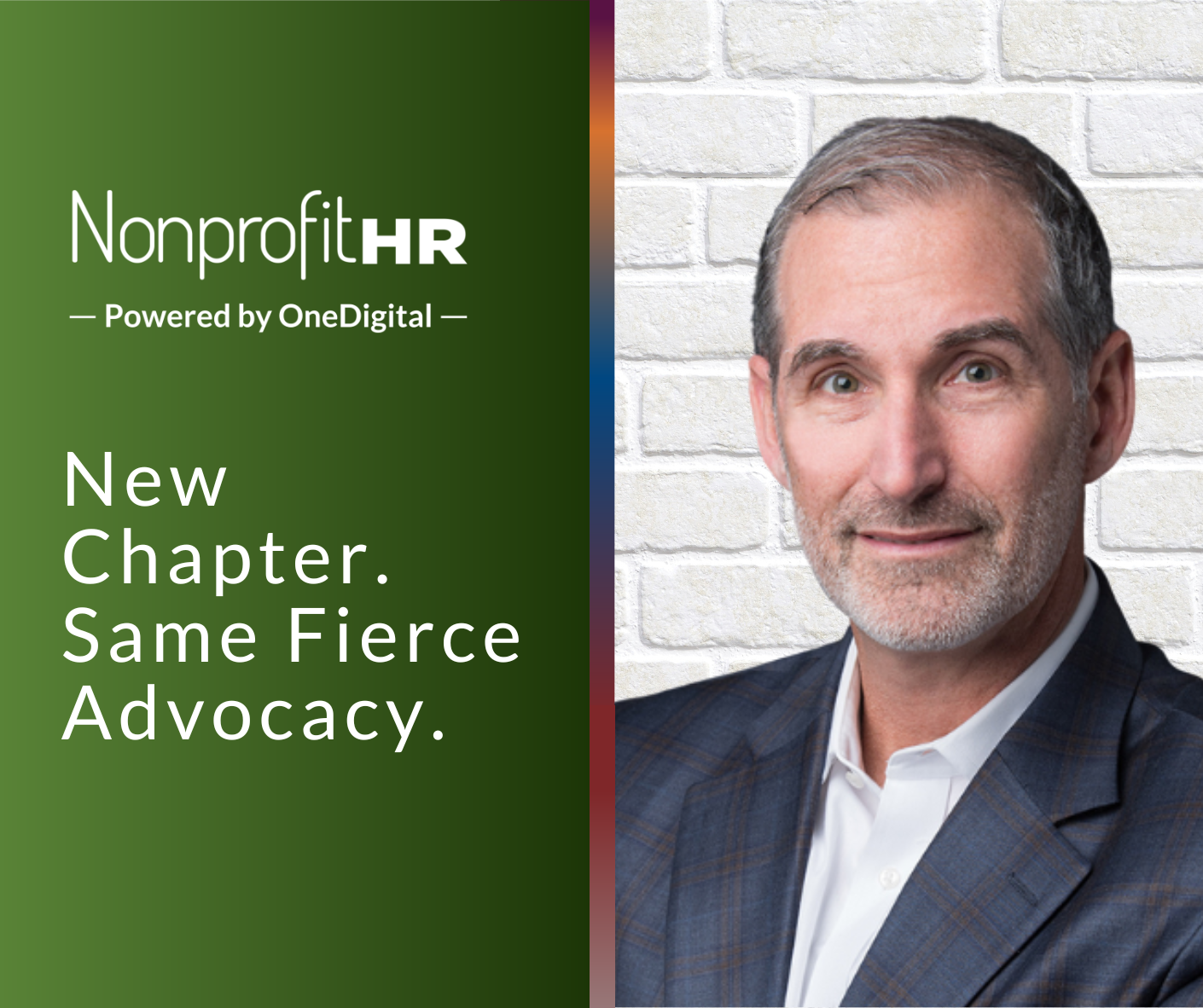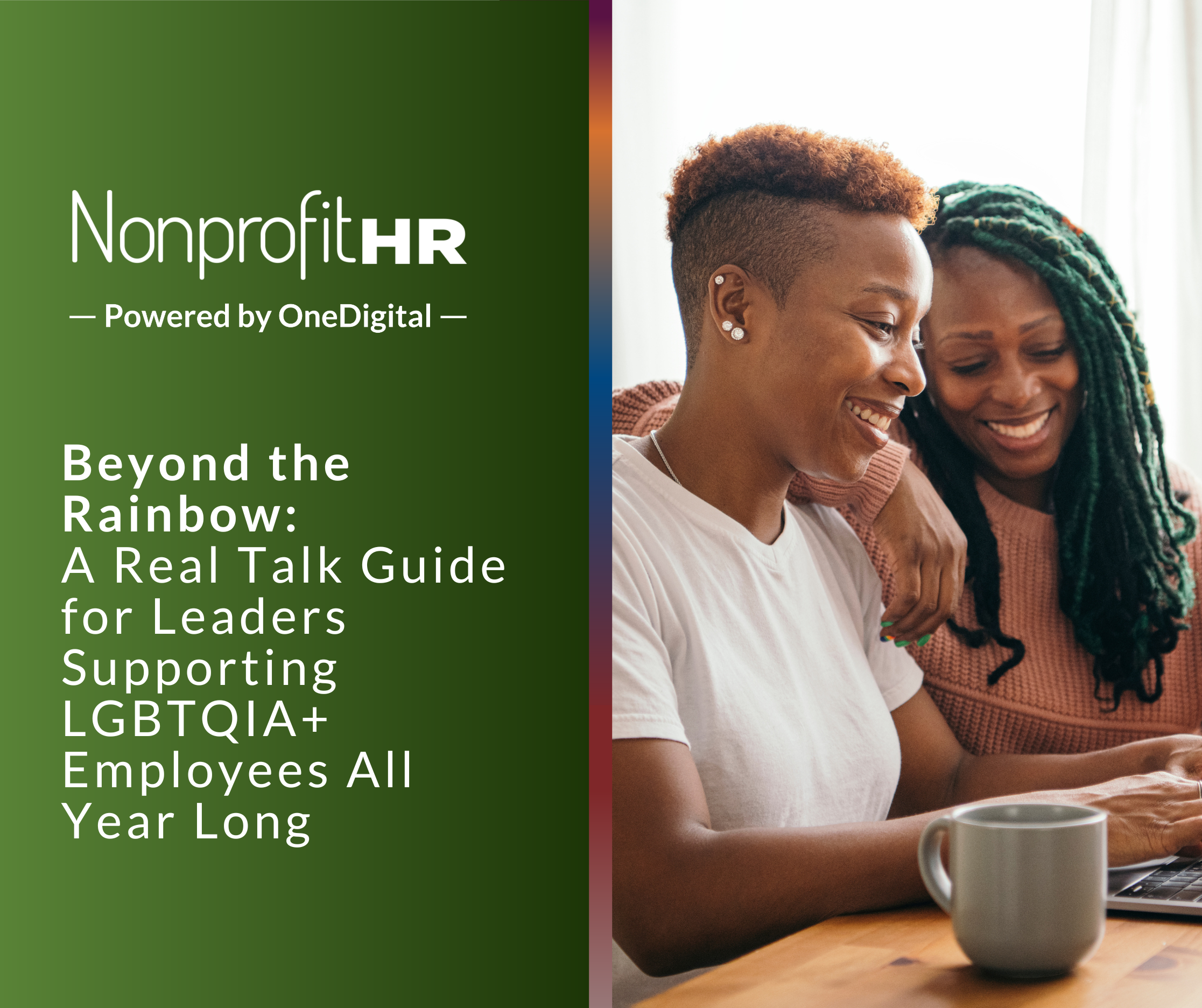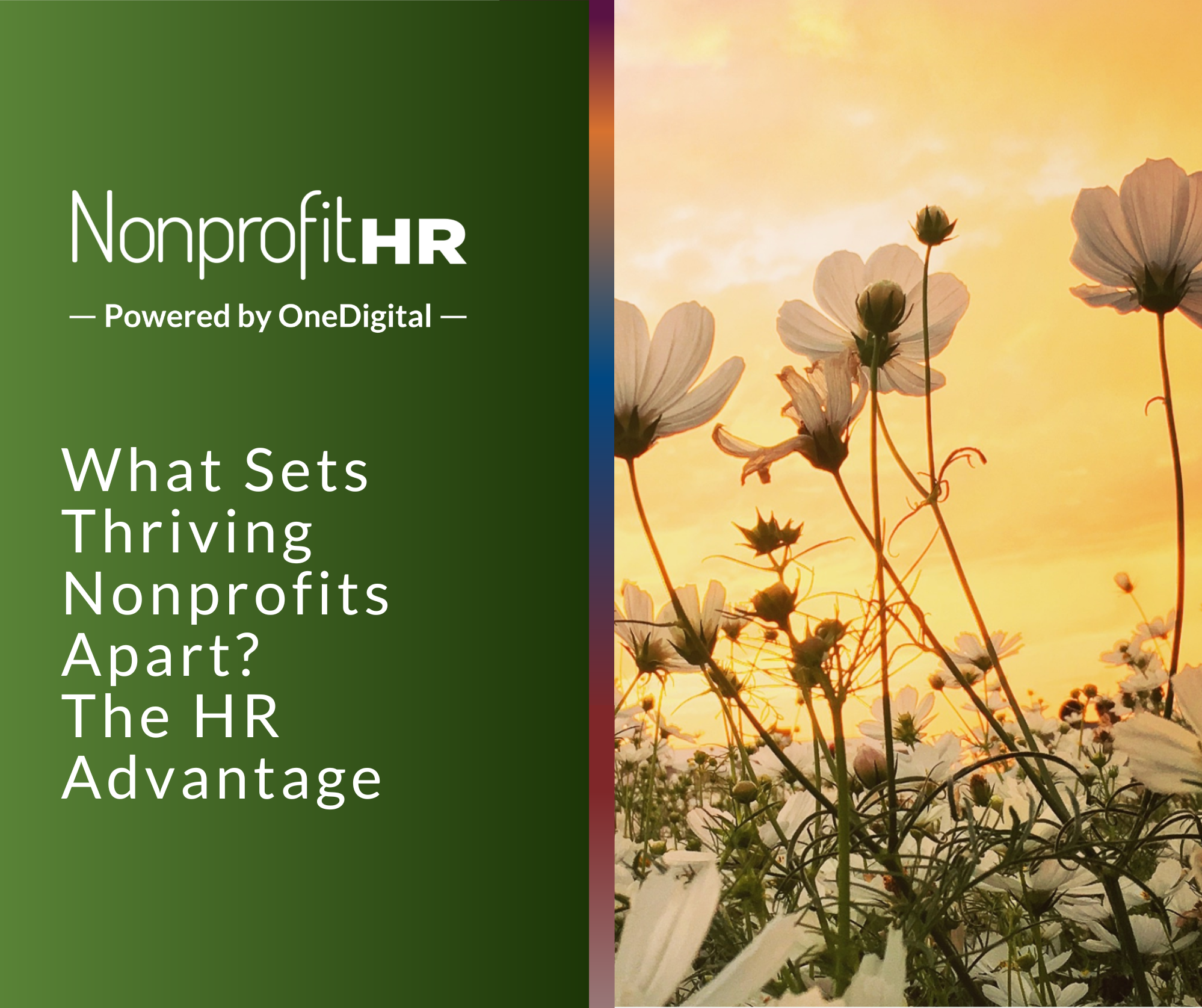WTOP: 5 ways nonprofits can…
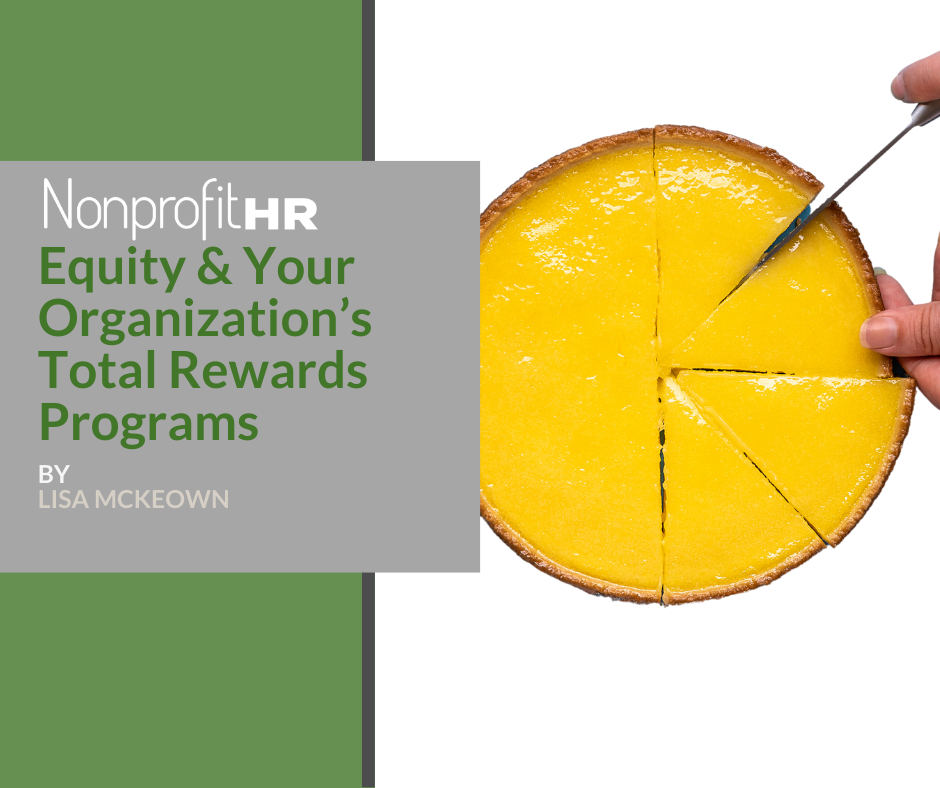
Total Rewards, as a practice, has changed dramatically over the years. When I started in human resources, benefits and salary were the main components of a new hire offer. Benefits work was a paper-driven process. Brokers were nonexistent. Selecting benefits plans, evaluating options, and decision-making were also narrow in focus.
The benefits conversation, however, has shifted from what’s best for the employer to what’s important to the employee. Completely different skillsets and an adaptive understanding of the definition of the 21st-century family are now required. Today’s employers now have a taller list of offerings to consider if they want to attract, grow, and retain their talent as well as ensure their employer’s benefits program reflects the unique needs of their workforce. As Nonprofit HR’s Managing Director of Total Rewards, I partner internally and externally with diversity, equity and inclusion experts on a daily basis. I work closely with search and outsourcing colleagues to ensure our solutions are strategic, holistic, legally compliant, brand-centric, and last but not least, aligned with current market trends and employee needs.
It’s not enough to just infuse equity into the compensation conversation, though that is a good place to start if your organization has yet to update its practices. Reviewing and determining your organization’s entire total rewards strategy through an equity lens is quickly becoming the gold standard and a best practice. Being proactive about integrating equity into your compensation practices is key. Your current and future workforce are watching and may soon seek opportunities to explore alternatives that align with the values your organization espouses, or to request new dialogue for greater equity.
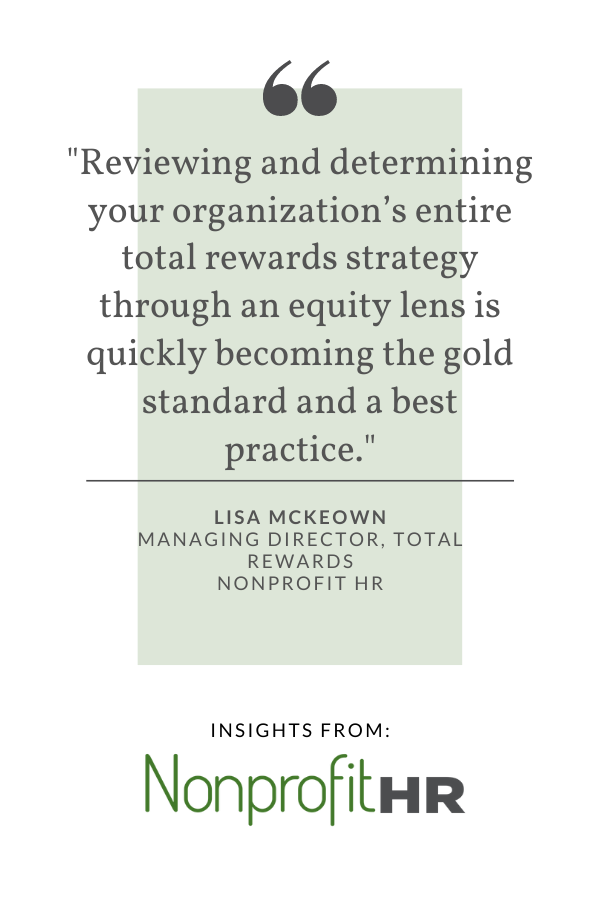
Areas of Opportunity
Equity and total rewards are functions within organizations that are often overlooked as areas of opportunity. McAfee notes that within these areas is compensation itself. “Organizations need to make sure that their definition of equity includes upskilling and investing in talent so that their people can continue to do their jobs. Leaders choosing to be accountable and having the courage to lean on that will make a difference in the emerging economy.”
In addition to this, McAfee shares his belief about the importance of job design. “Jobs simply need to be better designed. Oftentimes, job descriptions are unintentional. I’ve seen them poorly written and many times without a clearly defined role within an organization, let alone a direct link to the mission. Many also lack strategy in thought, particularly regarding minimum requirements for the role, education, and advanced degree justifications. Sometimes equivalent experience outweighs other requirements, and so requirements should never be standard unless truly necessary. These are both reasonable places where employers can enhance their total rewards programs.”
PolicyLink is a national research and action institute advancing racial and economic equity. Their mission is to “advocate for groundbreaking policy changes that enable everyone, especially people of color to be economically secure, live in healthy communities of opportunity, and benefit from a just society.” They employ advocacy, applied research and communications, constituency and network engagement, and implementation capacity to further advance their mission and achieve results for the communities they serve.
Overcoming Obstacles
It is no secret that social impact leaders face challenges when it comes to balancing strategic priorities while keeping labor budgets, equity, and talent retention at the forefront.
“How the capital gets structured is a primary challenge. For a social justice organization, there’s always a need for every dollar to be used toward the mission. We’re working to save people’s lives! Nonprofits need to always remember that when capital comes through foundations it becomes important to do what you’re paid to do. Funders want you to adhere to scopes of work as often their funding is also contingent upon that, and it’s really just the right thing to do! Many times, this means organizations have to become creative about funding their DEI initiatives, get out of their comfort zone, and yes, seek unrestricted funds.”
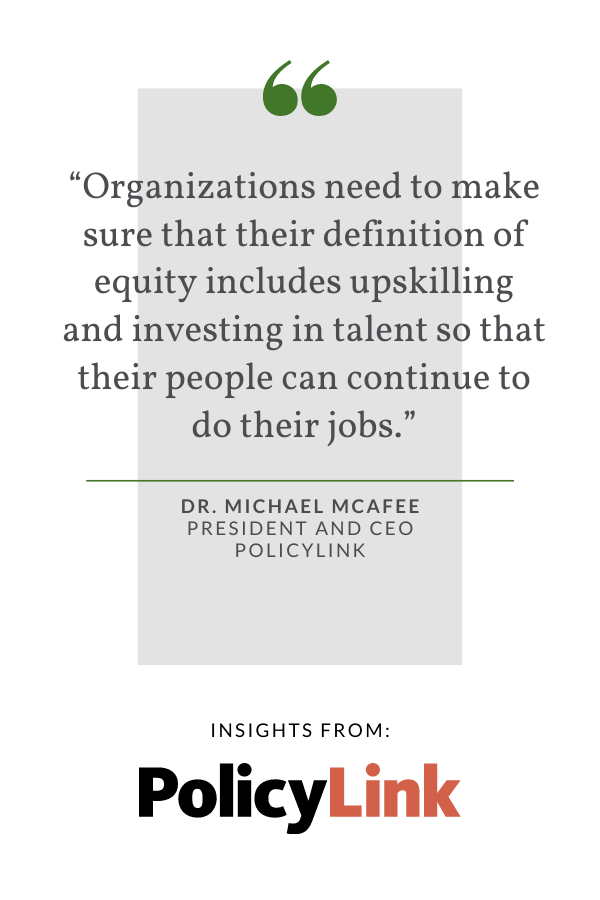
Similarly, Lisa Mottet explained how her organization simply needed to build a stronger infrastructure to address the equity imbalance. “We’ve failed over the past few years,” she said. “Our infrastructure and equity processes weren’t strong enough because we prioritize our mission, many times, at the expense of our talent needs.”
Mottet also revealed that her organization doesn’t pay any of its staff below $50,000. “We know that the budgetary impact isn’t substantial for us when it comes to a few thousand dollars, but it makes the difference for the candidate in terms of housing and quality of life.”
The National Center for Transgender Equality (NCTE) is a social justice advocacy organization dedicated to winning life-saving change for transgender people. Their mission is to “advocate to change policies and society to increase understanding and acceptance of transgender people. In the nation’s capital and throughout the country, NCTE works to replace disrespect, discrimination, and violence with empathy, opportunity, and justice.” Their ongoing projects include the Racial and Economic Justice Initiative (REJI), Trans Legal Services Network (TLSN), Voices for Trans Equality (VTE), and Families for Trans Equality (FTF).
McAfee further shares his approach when it comes to facing these challenges in talent management, DEI, and total rewards/compensation.
“At PolicyLink, I have made sure that the CEO role does not make more than five times what the lowest-paid person working for my organization makes, and the lowest paid person should make above the living standard for their market. I have seen organizations that run equity shops, but don’t have equity initiatives. It’s not enough to simply have persons of color in key positions. 2020 and beyond is not a moment for leaders to ‘get stuff’ who do not understand the value of achieving equity – a just and fair society within our organizations and beyond. The world cannot be held hostage by folks who don’t understand why it matters to pay women and persons of color fairly. That’s why DEI is heightening so fast. The past and present have been about centering whiteness and maleness. There’s tolerance for stagnant thinking and stagnant growth and that simply needs to end. Nonprofits in particular cannot be at the forefront of fixing nations if their organizations are oppressive structures. For example, why do organizations let hiring managers sit in jobs and accept that they can’t find women candidates in 20 years? Why can’t organizations figure out how to pay people fairly?” McAfee described that organizations that fail to change are ‘selecting mediocrity’.”
“In a nutshell, it doesn’t take a board to approve operational decisions such as salary and total compensation,” McAfee said. “When organizations hide behind their board for things they have the power to do, they undermine the entire concept of effective talent management. I can start with myself when it comes to this specific area of business.”
McAfee also explained that it is easy for DEI efforts to be undermined when they’re not owned and measured by leadership. If there is no accountability, there should be no expectation to achieve equity.
There are many ways that organizations can address DEI and equity, including outsourcing HR for support. Mottet acknowledged that partnering with Nonprofit HR to do a salary review was part of NCTE’s ongoing equity strategy in order to address the issues around DEI that the organization faced.
“First, we wanted to make sure that our compensation was fair and appropriate. We wanted to be above market rate – so we don’t start anyone under $50K. We’ve been on an intense journey, as have leaders I know who are running other organizations. I have seen outdated handbooks, travel policies that don’t take into account the transient nature of some roles, and undefined team and talent goals, let alone performance reviews.”
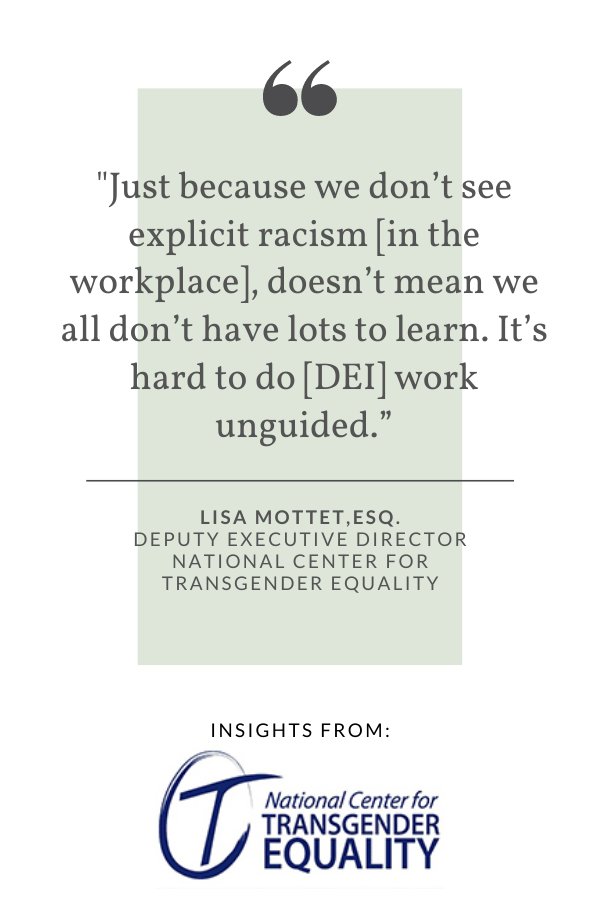
She shared the importance of thinking about the diverse communities that organizations employ and serve when planning the components of a total rewards strategy.
“Many of your readers may not be thinking about health benefits and how they affect transgender communities. Are your health plans trans-friendly? As folks are thinking about attracting diverse communities, think about the benefits. As a matter of equity, we don’t have an employee deductible on premiums. Leaders must look at their benefits and make sure all employees are covered and not negatively impacted, even inadvertently. Likewise, organizations must make sure their insurance companies don’t have exclusions in the plans themselves. If your plan is limiting, think about putting in other ways to support all of your employees, such as reimbursements.
Mottet also mentioned that her organization has a relatively transparent salary range for all positions. “When we didn’t have that, there was more suspicion. By putting more structure and transparency in place, it helped to create more staff trust. Emerging workforces, in part, had a hand in this becoming a reality.”
Roundup!
Now more than ever, organizations are seeking resources for DEI insights. Mottet indicated that her organization began working with expert DEI consultants this year and plans to continue this work. “I recommend that all nonprofits find a way to have this expertise either on staff or as a consultant. Right now, the conversation is very focused on racial justice. There are many talent-factored challenges going on in workplaces, particularly in multigenerational workforces. Organizations that aren’t responding to those will face hurdles. We tried lots of things. It wasn’t enough and it wasn’t fast enough. Just because we don’t see explicit racism, that doesn’t mean we all don’t have lots to learn. It’s hard to do this work unguided.”
McAfee revealed that he looked to his own lived experiences when it came to DEI. “Every day, I want to see humanity in others. In fact, it’s how I was raised. Ideally, DEI should not be a foreign concept. We should all want to treat others fairly, and as an adult and professional, that translates into paying people fairly. Most importantly, we must stop making DEI some magical thing you can’t understand. Oppressive policies are, many times, counter to people’s value systems, yet they still do it. In life, and work, I’ve decided that my person and my role have to be in maximum alignment.”
Step Into Your Impact
Mottet gave additional advice to leaders within the social sector on the importance of their impact as the workplace, and the nation, goes through a shift toward intentional DEI work. McAfree agrees, “This work isn’t about case making anymore. This nation is falling apart because we don’t care for each other. Are we going to contribute to the demise of this nation or strengthen and build it up? If you don’t want to see people’s humanity and pay people fairly, just call it. Nonprofits can do this! In fact, nonprofits, by nature, are led by some of the best hustlers out there. You can’t tell me you don’t know how to do this.”
McAfee also shared: “If you’re successful as an Executive Director, you have the skillset to make necessary changes. You pull off events on a shoestring budget. Personnel matters are the responsibility of the Executive Director/CEO. NO PERMISSION NEEDED. It’s up to you!”
What can HR Practitioners do next?
Organizations that do not have HR are not focused on human resources. Smaller organizations that are not focused on HR simply may not have access to up-to-date thinking, trends, and practices. It’s tough to keep up with all the changes, especially if you have multiple locations in different states. Still, it is critical to strive to align with other practitioners by hearing from others about the emerging issues they are solving and how they are staying compliant. Stay connected. Share.
In the domestic nonprofit and international NGO space, the passion for me comes from working with a multitude of clients with missions that are all about supporting people to live better everyday lives, whether that be through direct care, knowledge building and sharing, or culturally. Nonprofits are uniquely focused on the needs of their staff and the Total Rewards Team is privileged to support them and enable their staff to grow and their mission to flourish.
About the Contributors
Dr. Michael McAfee
President and CEO for PolicyLink
McAfee was born and raised in Kansas City, Missouri, a dollar short of being in the middle class. He grew up when folks were fighting about segregation and bussing, he saw segregation upfront. Attending a private school was what exposed him to people from various backgrounds and this left an early impression of diversity on him. He then served in the United States Army for eight years. McAfee received his Doctor of Education in human and organizational learning from George Washington University and completed Harvard University’s Executive Program in Public Management. He arrived at PolicyLink in 2011 after becoming the inaugural director of the organization’s Promise Neighborhoods Institute. Learn more about the work Michael is doing at PolicyLink.
Lisa Mottet, Esq.
Deputy Executive Director for the National Center for Transgender Equality
Mottet has been working in the transgender rights field for 19 years. She began as an attorney in 2001, contributing to the success of various transgender-inclusive federal legislation and federal administrative policy. Her interest in organizational leadership led her to her current role, where she oversees the internal operations and development sections of the organization, ensures financial health, and facilitates strategy development. Her organization’s partnership with Nonprofit HR fit into her role as an advocate.
“I see myself as air traffic control. I’m collecting, compiling, and presenting what’s coming forth for discussion and decision making based on policy and practice.”
She is a graduate of the University of Washington and Georgetown University Law Center and published work regarding homeless shelter access. Learn more about the work Lisa is doing at NCTE.

Lisa McKeown
Managing Director, Total Rewards
Nonprofit HR
Lisa offers clients more than 25 years of experience in global benefits, compensation and HRIS, with unique expertise in global compensation strategy, program design and operations. Known to bring a strong service orientation to every project she touches, Lisa a critical thinker who thoughtfully develops programs that are differentiating for clients and their employees, alike. Lisa’s toolbox is well-equipped, bringing clients stellar services on program design, systems implementation, vendor selection and management, HR policy development, as well as written and verbal communication and staff management. See Lisa’s full bio.
Need to talk with Nonprofit HR about your organization’s equity in compensation practices? Schedule a mini-consult with us! Email [email protected] or call 202.785.2060.


























